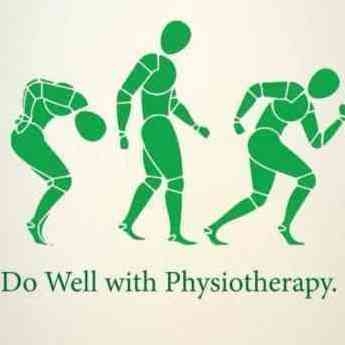+918042754929

This is your website preview.
Currently it only shows your basic business info. Start adding relevant business details such as description, images and products or services to gain your customers attention by using Boost 360 android app / iOS App / web portal.
>Difference between UMNL and LMNL : (Part 1) Upper motor neuron (UMN)Includes neurons in the brain and spinal cord (central nervous system, CNS) that control movement of muscles. UMN synapse onto lower motor neurons at the ventral horn of the
View DetailsANATOMICAL SNUFFBOX⠀⠀THE ANATOMICAL SNUFFBOX (also known as the radial fossa or tabatière anatomique), is a triangular depression found on the radial side of the wrist (lateral aspect of the dorsum of the hand). It is formed between tendons that
View Details𝗟𝗼𝘀𝘀 𝗼𝗳 𝗠𝘂𝘀𝗰𝗹𝗲- 𝗦𝗮𝗿𝗰𝗼𝗽𝗲𝗻𝗶𝗮 & 𝗔𝗴𝗲𝗶𝗻𝗴Sarcopenia is defined as progressive loss of Muscle mass with age.The term "Sarcopenia" is derived from the greek phrase "Poverty of Flesh" It effects majority of the elderly populati
View DetailsPRONATOR TERES SYNDROME⠀[MEDIAN NERVE ENTRAPMENT]⠀Pronator teres syndrome (PTS) is caused by a compression of the median nerve (MN) by the pronator teres (PT) muscle in the forearm. In the majority of cases (66%), it arises from unequal two heads
View Details🔈 MUSCLE ENERGY TECHNIQUE – SUBSCAPULARISANATOMYOrigin: Subscapular fossa of the scapulaInsertion: Lesser tubercle of the humerusAction: medial rotation of shoulder, stabilize the head of humerus in glenoid cavityASSESSMENT OF SUBSCAPULARIS
View DetailsThe relationship between foot and gluteus maximus.Are they co-related? Maybe? Or not?Lets think of what creates the medial arch of the foot? Peroneus longus, abductor hallus and tibialis posterior. These thress muscles play a key role in st
View DetailsHow important is the thorax?What is it?It is the upper part of the trunk that is mainly responsible for 60% or more of trunk rotation. Yes Thorax does flexion and extension. However, it mainly contributes to trunk rotation.What about the lumb
View DetailsFOOT PAIN CAUSES1. PLANTAR FASCIITISPlantar fasciitis occurs when the band of tissue on the bottom of your foot becomes inflamed due to a small tear. It causes a stabbing pain in your heel that may ease when you begin moving, but will likely return
View Details
 +918042754929
+918042754929